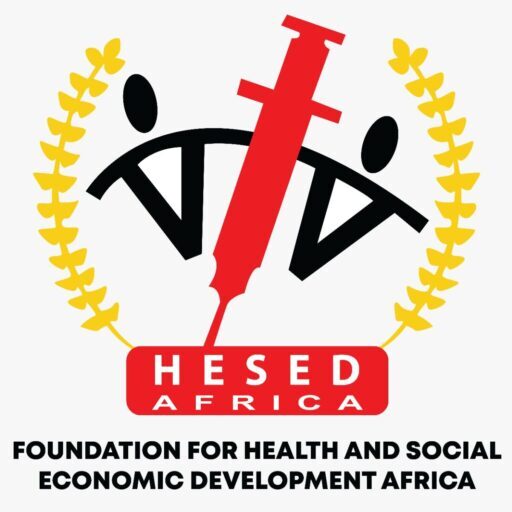Access to healthcare is a fundamental human right and therefore our overall goal of health programming is to work with the poorest populations so as to improve their health capacities. With support from partners, we provide essential medicine, laboratory equipment, supplies and reagents to health facilities that serve the migrants and refugees.
We support health facilities by providing clinical care services for survivors of all forms of sexual and Gender based violence.
HESED’s health programs integrate the following components into its programming activities:
(i) Preventative Health: – Nutrition, Water, Sanitation and Hygiene through health talks and information sessions as well as provision of food supplements, hygiene and sanitary supplies
(ii) Promoting equity and empowerment for better health: – This is done through conducting health talks and information sessions with our target population
(iii) Maternal, neonatal and child health: – Ensuring improved 4th ANC visits, improved skilled births, Post Natal care and immunizations follow ups.
(iv) Installation of Infrastructure and refurbishment of existing health structures: – To improve RMCHN and GBV indicators.
(v) HIV/AIDS prevention and mitigation– We engage the community in health talks and information sessions on the effects of HIV/AIDS, preventive measures and encourage those affected to lead a positive life by taking Antiretroviral drugs (ARVs) and the need to eat well balanced diet to boost their immunity.
(vi) Reproductive health education – HESED conducts health talks and information sessions at facility and community levels. On issues around reproductive and sexual health.
Integrated Medical outreaches
Health outreach as an initiative plays a critical role in improving and extending healthcare access through various activities for refugees, low income and vulnerable groups in the communities.
Our Outreach program reaches communities living at a minimum of 5km from the nearest health facility to the most remote areas and within the outskirts of refugee camps/settlements arising from conflict and disasters within the Horn of Africa. During the outreaches, proper diagnosis and treatment is provided to the beneficiaries.
We provide curative, nutrition support, family planning, HIV testing & counselling, and immunization services.
All beneficiaries receive free medications; referrals are made to the nearest public health facilities for follow ups.
Some of the outreaches/mobile clinics include specialty clinics for Eye and Dental services.
Other services include Health and Nutrition talks to mothers’ support groups for improved maternal child health indicators in line with the Universal health care –UHC.
Nutrition Support
Our nutrition program works with supported health facilities to assess urban refugees’ and host community nutrition status. The projects support with supplementation commodities. We work closely with community health workers to refer malnourished children to the weekly clinics.
Water, Sanitation and Hygiene (WASH)
Our project work with health facilities to ensure that water is available at the facility especially the laboratories and maternity wards. We provide washing soap, sanitizers, detergents, cleaning products, and sanitary hygiene products for girls and women. These personal hygiene items enable them to manage their personal hygiene and menstruation with privacy and dignity. Young boys also receive dignity kits with personal items for improved personal hygiene.
Sexual Reproductive Health Rights
Sexual and reproductive health and rights (SRHR) is an all-encompassing term that incorporates the full range of rights related to sexuality, gender, reproduction, including sexual and reproductive health. SRHR are premised upon the human rights of all persons to make free and informed decisions concerning their sexual and reproductive lives free from violence, coercion and discrimination.
The purpose of the theme is to sensitize the young women on their sexual and reproductive rights so as to make informed decisions. The program provides SRHR information sessions to adolescents and youth at community and school based levels.
Workshop with out of school youths by giving information on sexual reproductive health rights, SASA GBV especially on power within the community, healthy and unhealthy relationships and human rights.
The groups were taught about elements of healthy relationships, skills they need to make healthy decisions in a relationship, signs of power imbalance in a relationship and signs of an abusive relationship.
They were also educated on what to consider when making decisions around sex and sexual limits as well as abstinence, whereby our social work team advised those youths who cannot abstain to use protection to safeguard themselves from Sexually transmitted diseases. The groups also learnt about human rights.
The participants were also given examples of real-life scenarios whereby they were able to tell what constitutes GBV, sexual abuse and human rights abuse. We advised them on what to do should they be exposed to any of the identified abuses and where to seek help.
